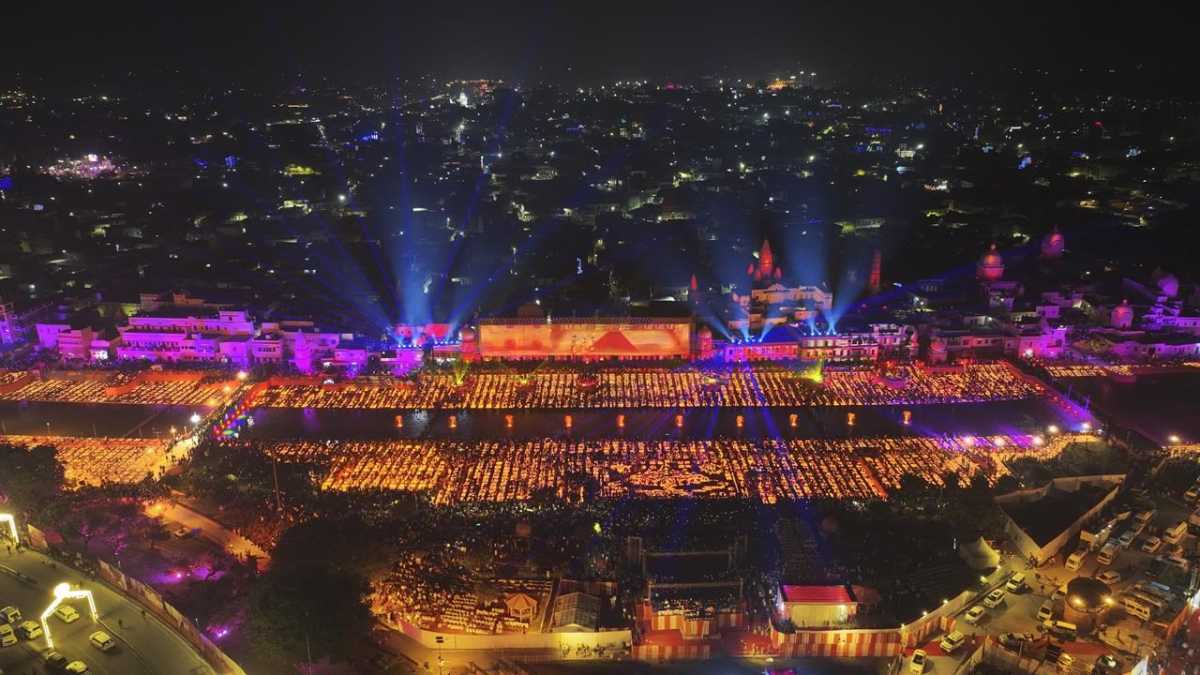World
Millions Celebrate Diwali in India Amid Rising Air Pollution Concerns

Millions of Indians came together to celebrate the annual Hindu festival of Diwali, setting a new Guinness World Record for the largest number of brightly lit earthen oil lamps. The festival symbolizes the victory of light over darkness, and dazzling multicolored lights adorned homes and streets across the country. In Ayodhya, the birthplace of the revered deity Ram, over 2.22 million lamps were lit on the banks of the Saryu River, surpassing last year’s record of 1.5 million lamps.
Yogi Adityanath, the top elected official in Uttar Pradesh state, received a record certificate from representatives of the Guinness Book of World Records after the counting was completed. The preparation for this year’s record-breaking event involved over 24,000 volunteers, mostly college students, who actively participated in the festivities.
Diwali is a national holiday in India, marked by socializing, exchanging gifts, and lighting earthen oil lamps or candles. Fireworks are also a common part of the celebrations. The festival includes a special prayer dedicated to the Hindu goddess Lakshmi, believed to bring luck and prosperity.
While the country experienced a moment of joy and celebration, concerns about air pollution during Diwali continued to rise. India has been grappling with hazardous levels of pollution, with the air quality index exceeding the global safety threshold. Although unexpected rain and wind temporarily improved air quality, it is expected to worsen again after the fireworks used in the celebrations. The city of New Delhi, known for its poor air quality, took steps to combat pollution by closing primary schools, banning polluting vehicles and construction work, and deploying anti-smog guns.
Notably, the Diwali celebrations coincided with the upcoming inauguration in January of a long-awaited temple at the site of the demolished Babri mosque in Ayodhya. The mosque’s destruction in 1992 sparked intense Hindu-Muslim violence, leading to the deaths of around 2,000 people. The Supreme Court ruled in favor of constructing a temple at the site, further adding significance to this year’s Diwali celebrations.












